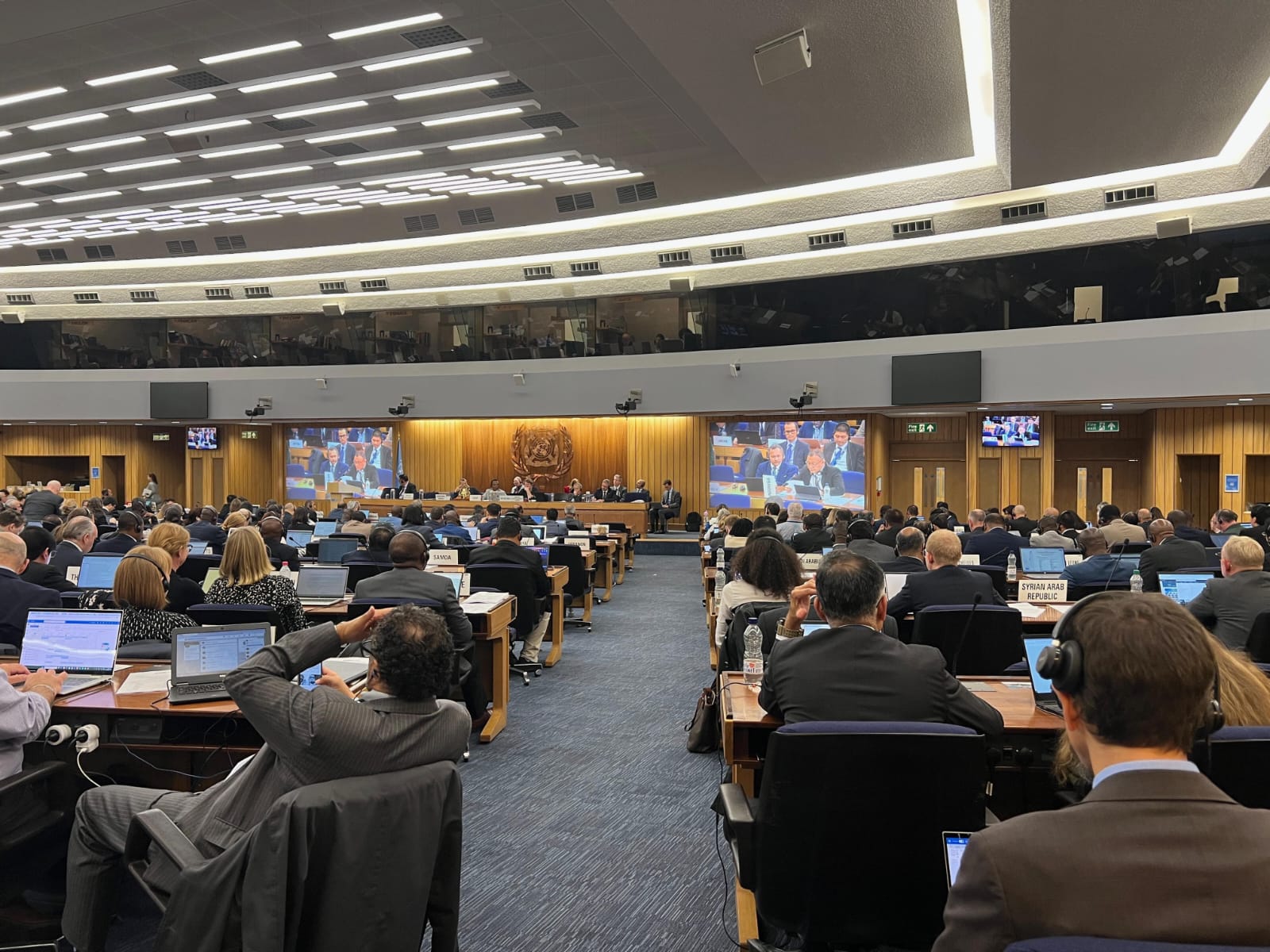ITS Lecturers Involved in the Ratification of the First PSSA in Indonesia

AA Bagus Dinariyana Dwi P ST MES PhD (third from left) with the Indonesian Ministry of Transportation team and members of the IMO after the PSSA Technical Group in London on October 3, 2024.
ITS Campus, ITS News — Institut Teknologi Sepuluh Nopember (ITS) continues to show its great contribution to the progress of the maritime world in Indonesia. This time, the ITS lecturer team contributed to the ratification of Nusa Penida and Gili Matra in the Lombok Strait as the first Particularly Sensitive Sea Area (PSSA) in Indonesia at the International Maritime Organization (IMO) forum in London, Thursday (3/10).
The head of the ITS lecturer team, A A Bagus Dinariyana Dwi P ST MES PhD, explained that currently there are only 18 PSSAs that have been determined by the IMO worldwide. Therefore, the determination of Nusa Penida Island and Gili Matra located in the Lombok Strait is the 19th PSSA and is also the first area to be determined in Indonesia. “The determination of the Lombok Strait PSSA is very important because of the geographical location of the Lombok Strait which is an international shipping route,” he said.
Furthermore, Dinar explained that PSSA is a special sea area that is determined to protect unique and fragile marine ecosystems from the threat of maritime activities. The Lombok Strait itself has met several criteria to be determined as a PSSA, including biodiversity, ecological, socio-economic, and scientific criteria. “Another consideration is that there is a core zone that should not be exploited by anyone other than researchers,” explained the lecturer at the ITS System Reliability and Safety Laboratory.

The atmosphere of the statement reading from Indonesia at the Plenary after Nusa Penida and Gili Matra in the Lombok Strait were officially designated as PSSAs by the IMO in London
The process of proposing the Lombok Strait to become a PSSA has been running since 2017. Over the past two years, a team of lecturers from the System Reliability and Safety Laboratory at the Department of Ship Systems Engineering (Siskal) and the Ecology Laboratory at the ITS Biology Department together with the Indonesian Ministry of Transportation (Kemenhub) have prepared a submission proposal to be submitted to the IMO. The proposal was successfully submitted in June 2024 and has been evaluated in the 82nd Marine Environment Protection Committee (MEPC) session on September 30 – October 4, 2024.
The results of the presentation of the proposal represented by the ITS lecturer team were considered complete and comprehensive, thus garnering positive reactions from the 22 delegates attending the meeting. There was an important point that was the key to the acceptance of Indonesia’s proposal, namely that in the Lombok Strait there were Associated Protective Measures in the form of Traffic Separation Schemes that had been officially implemented by the IMO in 2020.
In line with the statement above, Dinar revealed that one of the important points in the proposal was the concept of Tri Hita Karana (Harmony with God, Humanity, and Nature) which was outlined in six efforts to maintain natural harmony in Bali. This was a strengthening factor for the socio-cultural criteria that were rarely written in previous PSSA proposals. “There were comments from delegations from other countries that Indonesia’s proposal could be a reference for other countries in determining PSSA in the future,” said Dinar proudly.
Finally, Dinar hopes that the implementation of PSSA in Indonesia can further increase the awareness of stakeholders regarding the importance of preserving the marine environment. In addition, in order to open up opportunities to carry out the same actions in other regions in Indonesia. (ITS PR)
Reporter: Khaila Bening Amanda Putri
Related News
-
ITS Supports the Indonesian Economy through Blockchain Research Center Inauguration
ITS Campus, ITS News — Strengthening itself as a center for technology, research, and education, Institut Teknologi Sepuluh Nopember
October 04, 2024 17:10 -
ITS Academics Eases Social Media Management with ITSPik Innovation
ITS Campus, ITS News — To improve budget efficiency and strengthen branding, Institut Teknologi Sepuluh Nopember (ITS) academics initiated
October 04, 2024 17:10 -
ITS Inaugurates Two Hospitals in Mojokerto as Medical School Hospitals
Mojokerto, ITS News — Institut Teknologi Sepuluh Nopember (ITS) continues to show its commitment to supporting the clerkship education program,
October 04, 2024 17:10 -
ITS Ranks as the Best University in Marketing in Indonesia
ITS Campus, ITS News — Continuously striving to meet industry needs has successfully brought Institut Teknologi Sepuluh Nopember (ITS)
October 04, 2024 17:10
